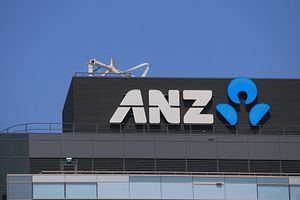Yet another major bank has announced plans for a shake-up of its subsidiaries as lenders position themselves for the launch of the ASEAN Economic Community (AEC) by the end of next year.
Melbourne-based ANZ Bank wants out of its partnership with Cambodia’s Royal Group, with Chief Executive Mike Smith signaling the group is more interested in wholly owned businesses.
“We got out of a relationship, a small relationship, in Vietnam. We would like to do the same in Cambodia. I’d much rather have a wholly owned business in these places,” Smith told journalists.
ANZ has a 55 percent stake in ANZ Royal, which it acquired in 2005. The operation now has 19 branches across the country. ANZ is understood to be keen on acquiring the 45 percent it does not already own but would be happy to sell if this was not possible.
ANZ Royal has been linked to funding a massive expansion of the Cambodian sugar industry, dubbed blood sugar amid allegations of land grabbing, evictions and use of child labor. The alliance with Royal Group in recent years has also been uneasy at times.
Smith made the announcement in Hong Kong while noting that ANZ’s 9.6 percent stake in Sacombank in Vietnam was sold in 2012. The bank has also indicated its 39 percent stake in Panin Bank in Indonesia could also be sold.
ANZ has interests in 15 countries across East Asia.
However, ANZ would hold onto a 24 percent holding in Malaysia’s AMMB Bank and 20 percent stake in Shanghai Rural Commercial Bank.
The announcement comes amid a major realignment of bank interests ahead of the AEC.
The 10-nation Association of Southeast Asian Nations (ASEAN) has witnessed strong growth in cross border trade which reached $323 billion in 2013. This is expected to expand further once the AEC is instituted, with additional growth anticipated after the ASEAN Banking Integration Framework (ABIF) is implemented in 2020.
Under the ABIF an ASEAN-based bank will be re-classified as a local bank across all 10 ASEAN countries. Currently these banks are categorized as foreign banks in a neighboring country subjecting them to offshore banking rules and regulations.
Importantly, the change in category will enable ASEAN-based banks to compete with an influx of major foreign banks, with the toughest competition expected from China and Japan.
Standard Chartered announced a week ago that it will realign its operations, particularly in Thailand, Myanmar, Vietnam, Cambodia and Laos.
Luke Hunt can be followed on Twitter @lukeanthonyhunt

































